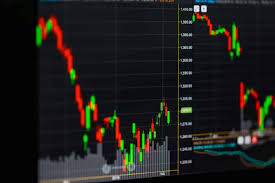
What is Forex Trading?
Forex trading, or foreign exchange trading, is the process of exchanging one currency for another in a global decentralized marketplace. Unlike traditional stock markets, Forex operates 24 hours a day, five days a week, allowing traders to engage in currency trades at any time. Traders capitalize on the fluctuations in currency values by buying when they expect a currency to rise and selling when they believe it will fall. To understand the mechanisms and implications of Forex trading, it’s essential to delve into its fundamentals. Additionally, for resources and insights on Forex trading, visit what is trading forex fx-trading-uz.com.
How Forex Trading Works
The Forex market is the largest financial market in the world, with a daily trading volume exceeding $6 trillion. The market consists of various participants, including banks, financial institutions, corporations, and individual traders. When trading Forex, currency pairs are involved, such as EUR/USD, GBP/JPY, or USD/CHF. These pairs represent the value of one currency relative to another. For example, in the EUR/USD pair, if the value is 1.10, it means 1 Euro can be exchanged for 1.10 US Dollars.
Key Terms in Forex Trading
Before diving further into Forex trading, it’s important to understand some key terms:
- Pip: A pip is the smallest price move that a given exchange rate can make based on market convention. In most currency pairs, a pip is equivalent to 0.0001.
- Spread: The spread is the difference between the bid price (what buyers are willing to pay) and the ask price (what sellers are asking for). It’s a key indicator of market liquidity.
- Leverage: Leverage allows traders to control larger positions with a smaller amount of capital. While it can amplify profits, it can also magnify losses.
- Lot: A lot is a unit of measurement for a foreign exchange transaction. The standard lot is 100,000 units of currency.
- Margin: Margin refers to the amount of money a trader needs to deposit to open a leveraged position.
Benefits of Forex Trading

Forex trading offers several advantages that attract both novice and experienced investors:
- High Liquidity: The Forex market’s massive trading volume provides high liquidity, meaning traders can quickly enter and exit positions without significantly impacting the market price.
- Accessibility: Forex trading is accessible to anyone with an internet connection and a trading account. Many online brokers offer user-friendly platforms and educational resources for beginners.
- Diverse Trading Options: Traders can choose from a wide variety of currency pairs, along with various trading strategies ranging from day trading to long-term positions.
- Potential for High Returns: With the proper use of leverage, traders can potentially achieve high returns on their investments, though this comes with an increased risk.
- 24-Hour Market: The Forex market operates around the clock, allowing traders to react to market events and news at any time of day or night.
Getting Started with Forex Trading
If you’re interested in starting your Forex trading journey, here are the steps to consider:
- Educate Yourself: Learn about the Forex market, trading strategies, and risk management. Many brokers offer educational materials for beginners.
- Choose a Reliable Broker: Select a reputable Forex broker that offers a trading platform that suits your needs. Look for proper regulation and customer support.
- Create a Trading Account: Open a demo or live account with your chosen broker to start trading. A demo account allows you to practice without risking real money.
- Develop a Trading Plan: Outline your trading goals, strategies, and risk management practices in a formal trading plan.
- Start Trading: Begin trading with a small amount of capital until you gain more experience and confidence.
Risks Associated with Forex Trading
While Forex trading can be lucrative, it also involves significant risks. Key risks include:
- Market Risk: The value of currencies can fluctuate rapidly, leading to potential losses.
- Leverage Risk: While leverage can amplify profits, it can also magnify losses, sometimes resulting in an account balance of zero.
- Interest Rate Risk: Changes in interest rates can significantly impact currency values and influence trader sentiment.
- Geopolitical Risk: Events such as elections, natural disasters, and economic reports can cause volatility in currency prices.
Conclusion
Forex trading provides an exciting and potentially profitable opportunity for investors willing to learn and adapt. Understanding the market mechanics, developing a solid trading plan, and managing risk are crucial for success. As you embark on your Forex trading journey, remember to continue expanding your knowledge and stay informed about the market trends. Happy trading!